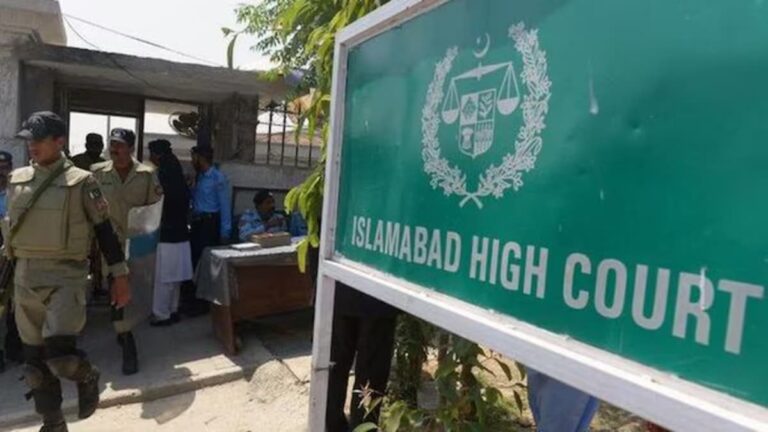Judge Mohsin Akhter Kayani criticised Pakistan’s intelligence agencies for continuing their practice of forcefully abducting people. Source: AFP
The Pakistan government’s unprecedented recognition of Pakistan-occupied Kashmir (PoK) as a “foreign territory” sparked controversy in Pakistan. The declaration was made by the Islamabad High Court (IHC) while it was hearing the kidnapping case of Kashmiri poet and journalist Ahmed Farhad Shah.
On Friday, Pakistan’s assistant attorney general argued that Shah was in police custody inside Pakistani territory and therefore could not be produced before the Islamabad High Court. AAJ News According to reports, the remarks were made after the Additional Attorney General was questioned by International High Court Justice Mohsin Akhtar Kayani as to why Shah was not available before the court.
The Attorney General argued that Pakistani territory is a “foreign territory” with its own constitution and courts. The judgments of Pakistani courts look like “judices of foreign courts”, he argued. After hearing this argument, Justice Kayani asked the Attorney General if Pakistani territory is foreign territory, how could Pakistani army and Pakistan Rangers have invaded this land. The court accused Pakistani intelligence agencies of indulging in “forced abduction of people”.
Shah, known for his defiant prose, was allegedly abducted from his home on May 14. A day after his alleged abduction, the Kashmiri poet’s wife, Urooj Zainab, filed a petition, seeking the recovery of her husband. She moved the court, urging it to identify, investigate and prosecute those responsible for her husband’s disappearance.
What does the Constitution of Pakistan say on this matter?
Article 1(2) of the Constitution of Pakistan states that the territory of Pakistan shall consist of the provinces of Balochistan, Khyber Pakhtunkhwa, Punjab, Sindh and the Federal Capital. Any province or territory included in the territory by accession or otherwise shall also be part of Pakistan, but does not specifically mention Pakistani Kashmir or the area they call “Azad Kashmir”.
Pakistan mentions Kashmir only in Article 257 of its constitution, where the said section states that Pakistani Kashmir will become a part of Pakistan only if its people decide to accede to Pakistan.
“Provisions for Jammu and Kashmir (PoK): In case the people of PoK decide to accede to Pakistan, the relationship of the state with Pakistan shall be determined in accordance with the wishes of the people of PoK,” the article read.
However, there is still no official answer to the question of whether the people of Pakistani Kashmir want to join Pakistan, so Pakistani Kashmir technically remains “foreign soil” for Pakistan.
Moreover, the so-called AJK Government Act of 1974 gives the region the right to have its own president and prime minister. It also has its own judicial system and an independent police force. As such, the region is outside the jurisdiction of Pakistani courts.
What is India’s position on this matter?
Notably, the Indian government still considers Pakistani Kashmir to be an integral part of India, a position reiterated by External Affairs Minister Dr S Jaishankar last month.
“Pakistan’s sovereignty has always been with India and will always be with India. Till Article 370 of the Constitution was invoked, there was not much discussion about Pakistan’s sovereignty,” the foreign minister said at an event in Kolkata. He was reacting to the recent unrest that has rocked the region.
“There is some kind of unrest going on in Kashmir right now. The analysis of it is very complicated but I have no doubt that someone living in Kashmir will compare their situation with someone living in Jammu and Kashmir and look at how people there have progressed recently,” the Indian diplomat asserted.
“They know the feeling of being under occupation, being discriminated against and being badly treated,” he added.Until now, EAM has maintained that all Indian political parties have been committed to ensuring the return of Pakistani-controlled Kashmir to India.
Find us on YouTube
subscribe

